On June 2 and 4, 2015 the Women’s Earth and Climate Action Network (WECAN International) held the first in a series of online trainings presented as part of the new U.S. Women’s Climate Justice Initiative. Launched with the goal of building a collective voice for U.S. women advocating for climate justice and action in the lead up to COP21 climate negotiations, the 2016 U.S. elections and beyond, these free education and advocacy sessions strive to provide the resources and support needed for women to become effective climate leaders in their communities, and at the national and global scale.
The first training, ‘Women for 100% Renewable Energy- From Installation to Advocacy’ centered on a few key questions including:
- What policies are most important to advocate for in the transition to 100% renewable energy?
- What is distributed/decentralized energy and how do we realize it?
- How do we move to install solar in our own homes and communities, including for low-income women?
‘Women for 100% Renewable Energy’ featured presentations by Angelina Galiteva and Diane Moss of Renewables 100 Policy Institute, Cathleen Monahan of Grid Alternatives, Allison Archambault of EarthSpark International, Lynn Benander of CoOp Power, and Robert Styler of Powur, with an introduction and moderation by WECAN International Executive Director, Osprey Orielle Lake. Full biographies are available here.

WECAN International and Renewables 100 Policy Institute advocating for 100% renewable energy at the Peoples Climate March in New York City, September 2014.
Osprey Orielle Lake opened the June 2nd training with a warm welcome and brief discussion of why women are so central in this stage of the human journey, as we move to address the climate crisis. Focusing in on one very tangible indicator, Osprey explained that in the United States women make approximately 80% of all consumer choices, giving them a powerful ability to direct fossil fuel divestment, clean energy choices and investment, and community-led grassroots transitions.
Osprey also opened the floor to a discussion of a central training topic; what does an equitable transition to renewable energy entail? She explained that a justice framework calls for renewable energy that is accessible to all peoples, that works with respect for Nature’s needs and diversity, and that does not pursue any false solutions, such as large-scale hydropower, nuclear energy, or shale gas.
She also spoke about the concept of a Just Transition and how a fair and sustainable low-carbon economy must care for workers, families and communities currently involved in conventional fuel production, ensuring that they do not bear the brunt of the transition to new ways of producing wealth.
Concluding her introduction, Osprey drew attention to the fact that the U.S represents 5% of the world population, yet produces upwards of 26% of global carbon emissions.
“As one of the world’s biggest carbon polluters, the US has a historic and current responsibility to lead the way to a clean energy future. But simply transitioning to renewables will not solve our problems, we must also dig deeper to address over-consumption and unequal distribution, analyzing how we can live better, not more,” she explained.
Angelina Galiteva, co-Founder of the Renewables 100 Policy Institute, presented first, providing a big picture look at why we must transition, what progress has already been made, and how women can work to further this transformation.
According to Angelina, we need to focus on 100% renewable energy because it is achievable, because it is an environmental imperative, and because dirty energy lies at the root of all of our problems, from poverty and inequality, to health, war, and climate catastrophe.
“Its very clear that pollution is not free,” Angelina commented, explaining that the fossil fuel industry is the worlds second largest water user, a primary source of water and air contamination, and a creator of huge wealth disparities. The pursuit of 100% renewable energy on the other hand, creates jobs, improves quality of life, mitigates climate change, and can bring energy security and environmental justice.
Angelina provided data to show that there is absolutely no technologic or physical barrier to 100% renewable energy, but rather, only issues of “political and investment will”.
To power the world with solar we need only 0.07% of global land area, and capturing just two minutes of the solar radiation that hits the Earth each day can power the world for a year. Not only could this provide clean and reliable energy, but it could also bring power to the 1-2 billion people who still do not have access to electricity.
“Local action matters,” and is driving the transition, with 8 countries, 55 cities, 58 regions, 9 utilities companies, and 21 nonprofits and educational and public institutions representing more than 52.8 million people already committed to a 100% renewable transition. On a good day, grid power from renewables is reaching more than 40% in California, and we have the demand, knowledge, and community support needed to bring this to fruition in communities across the U.S. and the world.
“We are all solar sisters,” Angelina concluded as she passed the floor to Renewables 100 Policy Institute co-Founder, Diane Moss.
Diane provided further insight into some of the 100% renewable victories already taking place, highlighted key policies to push for, and provided tips for successful organization.
Burlington, Vermont and Greensburg, Kansas have both achieved 100% renewable electricity, and many other U.S counties have firm commitments, including Aspen, Colorado by 2015, Palo Alto, California by 2017, Georgetown, Texas by 2017, East Hampton, New York by 2020, San Diego, California by 2030, and Hawaii by 2045.
According to Diane, some of the important initiatives that U.S. women can advocate for include policies that:
- set zero net-energy building targets
- streamline the permitting process for renewable energy installs
- promote and allow net metering
- cut direct and indirect subsidies for conventional energy sources
- educate and train citizens of all ages in clean energy and green job development
Diane explained that the first and most successful 100% renewable campaigns have come from communities that have promoted cooperation between activists, businesses, and the government. She also suggested that, whether at the household or global scale, 100% renewable energy projects be pursued with a set of short, medium, and long-term goals, with plenty of milestones to celebrate along the way.
Cathleen Monahan, Director of the Single-family Affordable Solar Homes (SASH) Program at GRID Alternatives, spoke next.
Cathleen and GRID Alternatives focus on solar accessibility for low-income communities for a few reasons. For one, solar installation can result in an 80% average reduction in monthly electricity bills. Secondly, the homeowners who can least afford clean energy are often the ones living in closest proximity to toxic conventional production.
After discussing the importance of renewables in a social justice context, Cathleen provided a look into some of the technical aspects of solar configuration and installation, including an overview of the parts of a solar energy system, different designs for mounting, options for connection (batteries vs. grid connected), selecting a contractor, financing your project, and tips for where to place your panels, which sizes to use, and system set up in different microclimates.
Cathleen also shared information about GRID Alternative’s Women’s Solar Initiative, which as gotten more than 1,000 women out on job sites to learn about solar energy. More information about opportunities to volunteer on a solar install with a powerful all-female team is available here.
Allison Archambault of Earthspark International opened the second day of training on June 4, joining the call from Haiti. She discussed the three keys to 100% renewable energy; storage, integration, and demand management. The later was of particular importance in her presentation, which busted the myth that supply must equal demand. Rather, Allison explained, in a sustainable renewable energy model, we should work to adjust demand to meet supply. For example, if we know that the grid will be strained in the afternoon on a hot summer day, we can work to pre-cool homes, thus re-distributing demand to function in harmony with the flow of energy production.
By building renewable energy infrastructure in optimal locations, using a mix of complementary technologies, and using smart grids to bring demand into equilibrium with supply, we can create “clean, local, efficient, affordable, reliable energy systems”- the CLEAR choice. Community micro grids were also discussed as key component of a resilient energy system, functioning independently of the bigger grid with on-site generation and storage.
Concluding her presentation, Alison spoke with participants about the idea of shifting from being consumers to ‘prosumers’, and discussed the sense of empowerment and connection that develops when individuals and communities re-claim local power and begin contributing back to a renewable energy grid.
Lynn Benander of Co-op Power spoke second, presenting the strategy of consumer owned energy cooperatives, as modeled by the Co-op Power network already up and running across New England. Participants in the New England renewable cooperatives come from multiclass and multirace backgrounds, promoting justice and diversity as the first step in sustainability and the clean energy transition.
Using the locally owned coop model, every community can decide what direction they want to take- be it solar, wind, biomass, or geo-thermal- and work to ensure that energy is created and distributed in a just and inclusive way. In bringing power back into the hands of residents, deep and sustained local economic development becomes a real, powerful possibility. According to Lynn, women are playing a key role on every level of community renewable energy development- as purchasers, activists, policymakers, supporters, organizers, and builders.
She also shared the Co-op Power ‘5 Years to Energy Freedom’ plan, which asks people to pledge to reduce energy consumption by 50%, and then work towards using renewables to supply the other half.
Lynn ended her presentation with a powerful assertion that the only precedent to the renewable energy movement is the abolition movement, with both striving to address economic injustice and root causes of unequal power and poverty dynamics. In fighting for 100% renewable energy, we are thus furthering the work of the important movements that have come before us.
Robert Styler of Powur spoke with training participants last, expanding upon Lynn’s sentiment that a virtually unprecedented movement is taking place. In his words, “the greatest transfer of wealth in history is happening now, from the fossil fuel industry to clean energy entrepreneurs like you.”
“Concentration of power is a disaster,” Robert commented, highlighting how the pursuit of renewable energy gives us an opportunity to reverse this trend by decentralizing both energy production and wealth creation. Despite being up against big obstacles, Robert explained that we are at a tipping point, with even the big banks and head of the Federal Energy Regulation Committee conceding that renewable energy is well on its way to making fossil fuels obsolete.
Robert provided background on the Solar City program which is installing a new solar system in the U.S. every three minutes, and discussed the ways that Powur is working to make financial support accessible for homeowners and organizations leading the renewable energy transition through an ingenious new fundraising system.
Thanking WECAN International and training participants for allowing him to present, Robert expressed his deeply held belief that the shift to a just and healthy world will be one led by women, and supported by men.
During the question and answer segments of the two-day training participants and speakers engaged in discussion about passive solar and the promotion of net-zero energy homes, how to modify the renewable energy tax credit system so that it benefits low-income communities, and the need to address campaign contributions so that big utility and fossil fuel companies cannot continue to push dirty energy. They discussed the need for carbon taxes, the potential of geo-thermal, how to promote renewables in high-density urban centers, and the power of focusing on your own zone of influence while educating others and taking personal steps to further the 100% renewable energy transition.
‘Women for 100% Renewable Energy- From Installation to Advocacy’ was presented by the WECAN International Women’s Climate Justice Initiative (WCJI). More information about future education and advocacy sessions is available on the WECAN International webpage. The next free online training- ‘Health & Climate Change: What Is At Stake, What Can Be Done’ will be held on June 23rd and 25th. To register for WCJI updates and calls to action, please click here.
Women for 100% Renewable Energy Training Resources:
- The Guardian- ‘Fossil Fuels Subsidized By $10m A Minute, Says IMF’
- Youtube- ‘Elon Musk Debuts the Tesla Powerwall’
- Citizen Climate Lobby
- Vote Solar
- Institute for Local Self Reliance
- Solar City
- Women’s build volunteer opportunity with GRID Alternative
- Kid Wind Curriculum for kids grade K-12
- Wind For Schools Project
- Solar Sisters
- Angelina Galiteva Training Powerpoint
- Diane Moss Training Powerpoint
- Cathleen Monahan Training Powerpoint
- Allison Archambault Training Powerpoint
- Robert Styler Training Powerpoint
Blog by Emily Arasim, WECAN International Communications Coordinator & Project Assistant
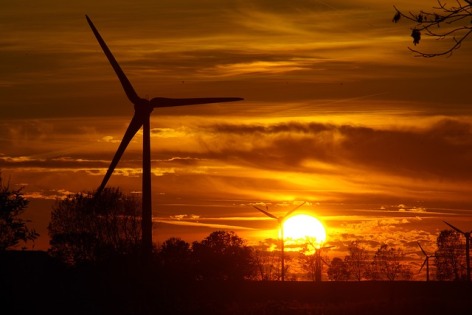
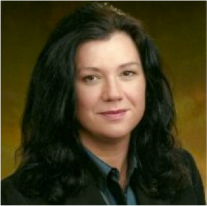

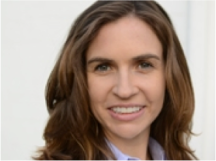
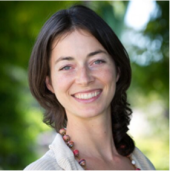
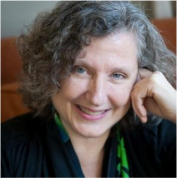
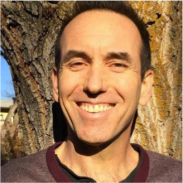
Excellent workshops, lots of good information and accessible. Thank you, yes WECAN!
LikeLiked by 1 person